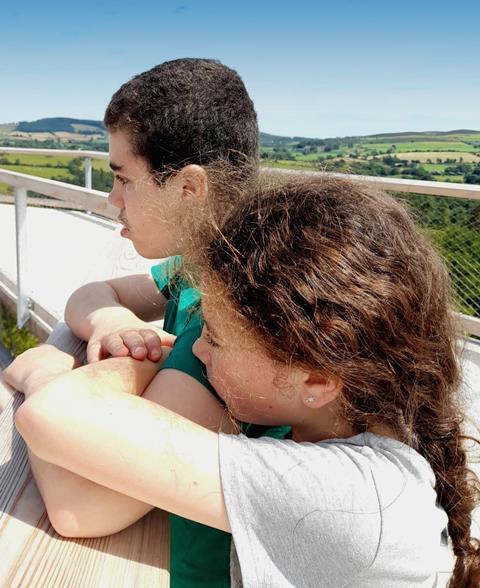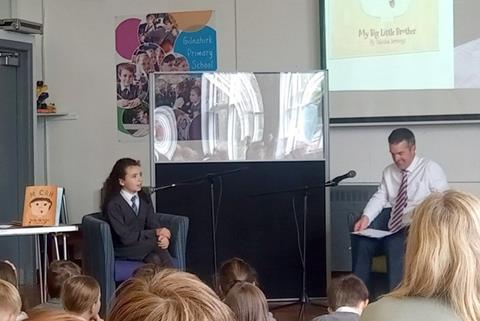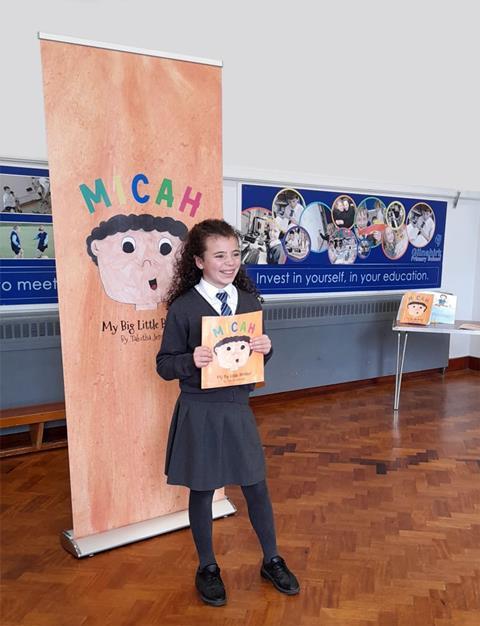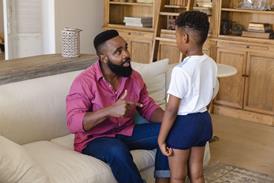Around one percent of adults and children in the UK are on the autistic spectrum, meaning that they have a developmental disability that affects how they communicate and interact with the world. Donna Jennings was serving as a Christian worker with her husband in Bangladesh when it was clear that things were not well with their son, Micah. She explains how this turned their lives upside down and how her daughter Tabitha has written a book that helps children and adults understand the condition better.

YCW: How did it became clear that you wouldn’t be returning to Bangladesh?
DJ: So many of Micah’s professionals were Christians and were able to speak into our situation because they understood our lives and how Micah’s needs would disrupt these.
As we grappled with eight years of theological training, partnership development, culture learning, building relationships and seeing small seeds of faith come begin to blossom, we realised that the support Micah and our family required would be complex and long term, and so we made the heart-wrenching decision to stay in Belfast. And have wondered at the mysterious and hidden ways of God, that made no sense to us at that time.
“Becoming a parent to Micah…has been the deepest journey of my faith seeking understanding”
YCW: And now you are helping people understand disability?
DJ: Back in Belfast, we walked step by step in faith to rebuild a different kind of life than we had imagined. Our master’s degrees had focused on contextual ecclesiology, and our experience in Bangladesh had let us develop an understanding of the kingdom of God breaking into the world in and from the margins.
My husband, who is mixed race, began working for OMF, a mission agency. Northern Ireland was the last place Nathaniel imagined he might live, but now he is developing intracultural church across UK.
I am with the Evangelical Alliance and work alongside the NI church to support an effective Christian witness in a changing culture.
Although my degree and experience in Bangladesh led me into some deep questions of faith, becoming a parent to Micah, who now lives with non-verbal autism, complex needs and profound intellectual disability, has been the deepest journey of my faith seeking understanding.
Micah raised questions such as ‘What does it really mean to be human?’ ‘What has God done, in Christ, for the Micahs of this world?’ ‘How have we read Scripture?’ and ‘How can a boy who exists in the world with no words engage with the word of God?’.
I did a deep dive into disability theology for my personal search, which ended up unfolding some unexpected work for disability within the church and society.
YCW: How did Tabitha come to write a book about her older brother?
DJ: While I processed the loss of the son and life I had expected, Tabitha has never understood Micah’s disabilities and needs to be anything other than the norm. Micah has always been and will always be primarily her big brother.
Aged four, she began to discuss what she and Micah would be when they grew up, and as I prepared to explain what Micah’s future looked like, she said: “Mummy, he will be my children’s uncle.”
Tabitha, now eleven, has a gift for imaginative writing. Her teacher, a deeply invested Christian, gave Tabitha space to tell the class stories about Micah. The rest of Tabitha’s class had never met a non-verbal child with more complex needs.
Tabitha’s stories about Micah were so positive, child-friendly and entertaining, they became an important experience for the whole class, who were learning not just about Micah but began imagining a new way to be friends with other children despite difference.
Her teacher and I agreed these need to go wider than this one classroom.
The class teacher invited a contact in the printing industry, who helped Tabitha to write, illustrate and format her stories into a children’s book, My Big, Little Brother. We started a crowdfunding page, hoping to raise £300 for a small number of copies, but in under two weeks we had raised nearly £3,000 from people across the world!

YCW: And what’s the future?
DJ: We held a small book launch at the end of June for the school community and key professionals. The BBC were delighted to do some media coverage, that generated interest not just in Northern Ireland but globally.
We have met with the Department of Education to explore the use of the book within NI primary schools, and we are in conversation with children’s rights organisations to raise the issue of how we might represent non-verbal children’s voice within public sphere.
However, we are still seeking out the right publisher who can help make this book widely available.

YCW: What about the Church?
DJ: Too often the Church can see children and adults who live with disability as ‘them’ and ‘us’, or they become sympathy projects within the Church. Tabitha’s book has an important message for the Church. Tabitha and Micah have a beautiful, mutual relationship. Tabitha gives to and receives from Micah; Micah receives from and gives to Tabitha.
I think it is significant that rather than just walking over to heal people on the margins, Jesus often sends his disciples to bring these individuals to him. They have to come up close and alongside, to look into their eyes, form words, call their name and then to walk back towards Jesus together.
Even today, Jesus calls his followers towards the marginalised people of society, of community and yes, of the Church. He sends us into deep human encounters with individuals who are different to us, because it is in this space that we are most deeply changed, and experience a mutual healing.
What might it take for a church family to embrace their brothers and sisters, to imagine a community who belong together, who walk towards Jesus despite the differences of disability? A church family who can genuinely say that when Micah grows up, he can be our children’s uncle, or as for me, my deepest teacher.






































